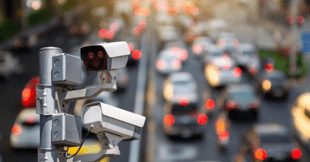
Editor Introduction
The Internet of Things (IoT) has revolutionized many industries, including physical security. By connecting physical devices to the internet, IoT technology offers significant enhancements to security systems. Benefits include real-time monitoring, remote access, and the utility of new devices such as temperature and humidity sensors. At the same time, IoT devices come with challenges, including greater cybersecurity vulnerability. We asked this week’s Expert Panel Roundtable:
How is the Internet of Things (IoT) impacting the physical security marketplace?
 The Internet of Things (IoT) is changing the landscape of physical security by enhancing surveillance, access control, and environmental monitoring. Each IoT device transmits the data it collects automatically back to a service, which typically resides in the cloud. Customers can understand events in their deployment in near real-time without human interaction. These solutions can help understand if a space is occupied, the environmental conditions of a space, or when anomalies occur. Depending on the sensor these can be less expensive to deploy and operate than a camera, which requires a person to monitor. Challenges, such as cybersecurity, privacy, and interoperability, should be addressed when deploying an IoT network. Lack of interoperability or integrations can lead to an increased workload on operators monitoring the deployment.
The Internet of Things (IoT) is changing the landscape of physical security by enhancing surveillance, access control, and environmental monitoring. Each IoT device transmits the data it collects automatically back to a service, which typically resides in the cloud. Customers can understand events in their deployment in near real-time without human interaction. These solutions can help understand if a space is occupied, the environmental conditions of a space, or when anomalies occur. Depending on the sensor these can be less expensive to deploy and operate than a camera, which requires a person to monitor. Challenges, such as cybersecurity, privacy, and interoperability, should be addressed when deploying an IoT network. Lack of interoperability or integrations can lead to an increased workload on operators monitoring the deployment.
Editor Summary
Embracing the Internet of Things (IoT) can expand the capabilities of physical security systems, but there are concurrent challenges to address, including cybersecurity risks. The impact of the IoT will continue to transform the physical security market in the coming years as the burgeoning wave of IoT devices prove their value in protecting people, places, and things. More than a buzzword, IoT stands among the megatrends poised to reshape the physical security marketplace for the better.
Read the full article on www.securityinformed.com
Chris Garner
Chris Garner is a Senior Product Manager at Salient Systems. He is primarily responsible for the CompleteView video data platform. Chris brings 20 years of experience in the physical security industry to this role. He Joined Salient in 2012, beginning his career in the systems engineering organization where he was responsible for specifying, deploying, and supporting video management software and video recorders. Chris transitioned to Product Management in 2015, where he previously worked with technology partners on integrations and hardware products. Chris holds a Bachelor of Science in Information Technology and is a veteran of the U.S. Navy.


